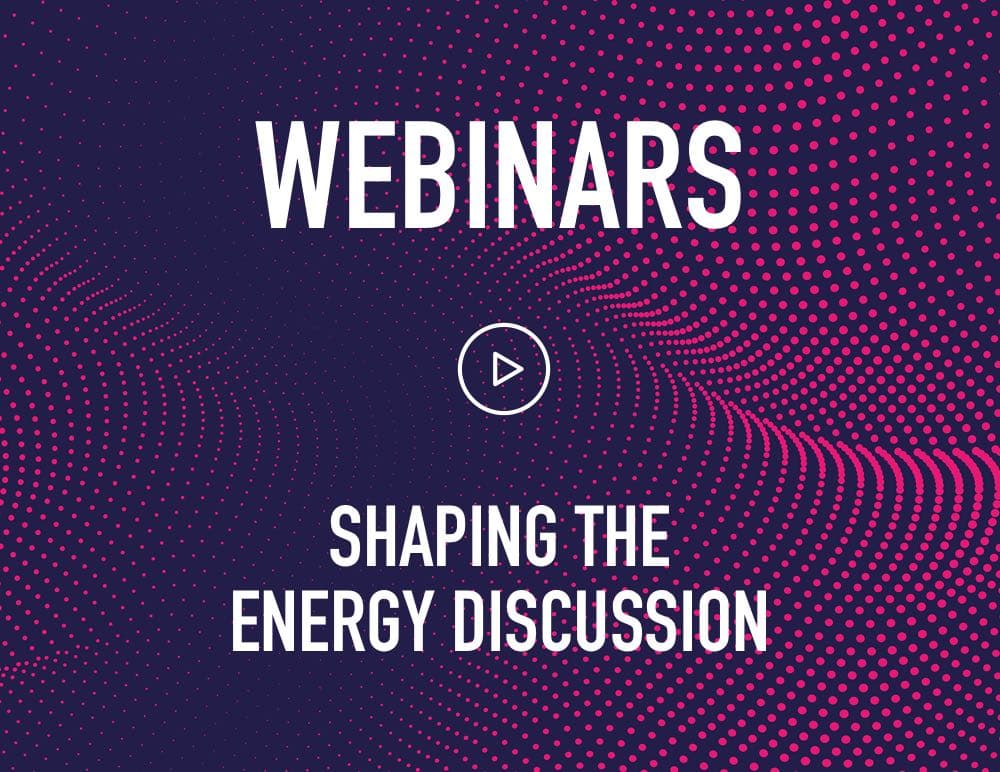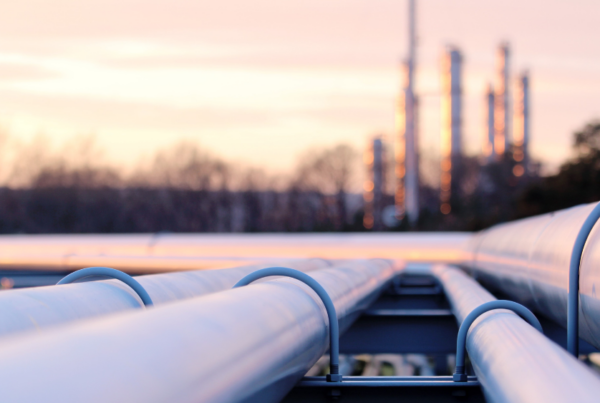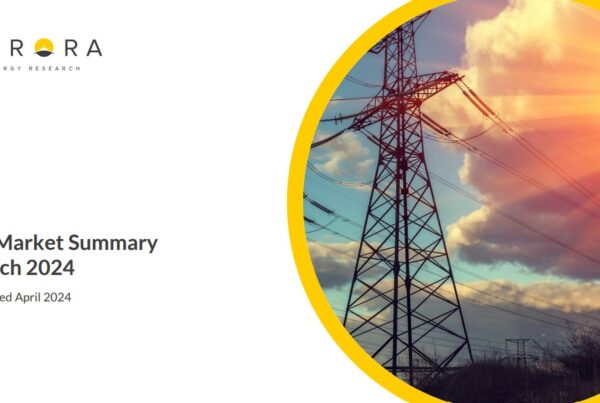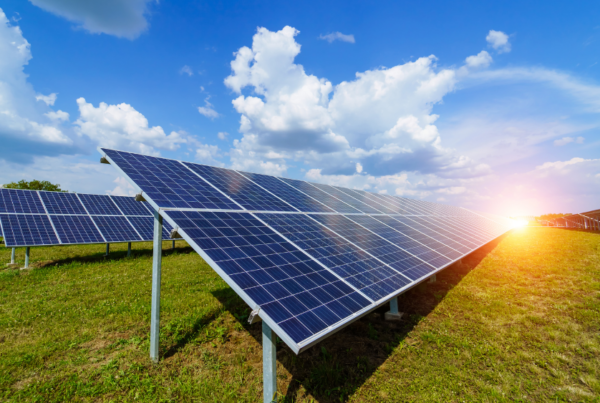
- A new report from Aurora Energy Research suggests that increased deployment of, and continued improvements in virtualisation technology—allowing for much more computation to be done with less energy—could reduce potential future European computing emissions 55% by 2040.
- Computing demand from enterprises is expected to grow exponentially over the next couple of decades as they engage with digitised information to transform their business operations, including adoption of compute-intensive revolutionary technologies such as blockchain, machine learning and artificial intelligence.
- In a Zero Progress scenario, where current technological progress surrounding virtualisation software and its penetration remains stagnant, European computing emissions could grow more than 250% over the next 20 years.
- A standardised and coherent policy on data centre operations could support the advancement of virtualisation technologies and their uptake, enabling the avoidance of almost 454 million tonnes of carbon dioxide emissions over the next 20 years—roughly the equivalent of total greenhouse gases for all the UK in 2018.
- In a society that is dealing with a new paradigm due to the Covid-19 pandemic, everyday tasks—going to work, connecting with family, attending school—are more and more empowered by data centres and the cloud. Support for technologies to reduce the energy intensity and emissions impact of this paradigm shift will become increasingly important.
The use of virtualisation software (that allows for much more computation to be done with significantly less IT hardware), improved management and optimisation of operations, and hardware upgrades enable productivity and energy efficiency improvements in IT operations. Coupled with the increased usage of renewable energy to fulfil electricity requirements, these energy efficiency gains can help IT operations in Europe to substantially decrease their carbon footprint. This is especially important as more and more enterprises are engaging with digitised information to transform their business operations, leading to continued exponential growth in computing demand.
Aurora’s report, commissioned by VMware, examines possible future scenarios of European computing demand and its impact on European electricity consumption and emissions. A ‘Zero Progress’ scenario was developed to understand what computing emissions level may result in a world where current technological progress surrounding virtualisation software and its penetration remains stagnant through to the year 2040. The report then compares a ‘Continual Improvement’ scenario that applies reasonable trends to these factors to assess the impact of virtualisation in abating future emissions from European computing demand.
The analysis suggests European computing emissions could grow more than 250% over the next 20 years in a Zero Progress scenario. Continued improvements in virtualisation technology and its penetration can enable a cumulative CO2 reduction of 454 tonnes by 2040—a 55% drop compared to the Zero Progress scenario.
The report assesses two possible levers to further mitigate the carbon footprint of European computing demand: 1) further increasing the virtualisation rate of public cloud data centres and on-premises IT operations and 2) increasing the number of renewable-energy powered data centres and shifting computing demand to locations of lower power grid carbon intensity.
The report also provides an overview of how data centres can play a role in helping integrate renewables into European electricity grids. The intermittency of renewable energies like wind or solar present some challenges that require system flexibility. Data centres can help integrate renewables into the grid by:
- utilising their backup/emergency battery storage to help balance supply and demand on the grid
- optimising the cooling of IT infrastructure to provide flexibility to the grid; and
- engaging in demand response by reducing data centre power consumption to better match the current local supply of renewables.
While this report quantifies the possible impact of technical developments in both the computing and electricity sectors in Europe, a standardised and coherent policy on data centre operations and computing procurement policies would enable the industry to identify and implement critical initiatives to support the decarbonisation of the sector.
Fortunately, the new European Commission (EC), the EU’s Executive Branch which took office in November 2019, indicated two of its main priorities are to lead on the digital and green transformation of the European Union.ii Included in this effort is the EC’s intention to implement a “Green Public Procurement policy”—a voluntary instrument intended to nudge purchasing power towards environmentally friendly goods, services and works.iii Additionally, the EC identified the need to reduce the digital sector’s carbon emissions. In particular, data centres will need to become more energy efficient, reuse waste energy and use more renewable energy sources with the aim of becoming climate neutral by 2030.
Ana Barillas, Head of Iberia at Aurora Energy Research commented:
“The COVID-19 pandemic has made our reliance on the cloud abundantly clear. The demand for computing across Europe is only expected to grow over the next 20 years and how we deal with its impacts on CO2 emissions will become increasingly important. The continuing improvement and adoption of virtualisation technologies can enable a 40% increase in electricity consumption from European IT over the next two decades without a corresponding impact on emissions. However, unclear and heterogenous policy frameworks across the EU can hinder the scale of technology adoption required to enable this transition.
“This report sheds light on the positive impact of continuing technology improvements like virtualisation on CO2 emissions from computing, but also provides an indication of what a counterfactual world with stifled innovation in virtualisation might look like.”
Luigi Freguia, Senior Vice President and General Manager EMEA at VMware commented:
“Cloud technologies play a pivotal role in achieving power sector emission reductions in Europe. Sustainability is core to VMware’s values and our Environmental, Social and Governance (ESG) vision, and we contribute to a more resilient world by decarbonizing digital infrastructure.
“This report from Aurora Energy Research demonstrates that increased deployment of, and continued improvements in virtualisation technology, allows for much more computation with less energy, and has the opportunity to reduce potential future European computing emissions 55% by 2040.
“VMware’s best in class technology supports our customers to balance digital transformation with energy efficiency and we look forward to continuing to work with our customers and EU policymakers to foster and build an eco-friendly efficient European cloud.”
– ENDS –
MEDIA CONTACT
Caroline Oates, Marketing and Media Manager
Email: caroline.oates@auroraer.com | Mobile: +44 (0)7912 568570
ABOUT AURORA
From its Oxford academic roots, Aurora Energy Research has grown to become the largest dedicated power market analytics company in Europe, providing data-driven intelligence for strategic decisions in the global energy transformation. We are a diverse team of more than 170 experts with vast energy, financial and consulting backgrounds, covering power, hydrogen, carbon and fossil commodities. We are active in Europe, Australia and the US, working with world-leading organisations to provide comprehensive market intelligence, bespoke analytic and advisory services, and cutting-edge software.
AURORAER.COM






